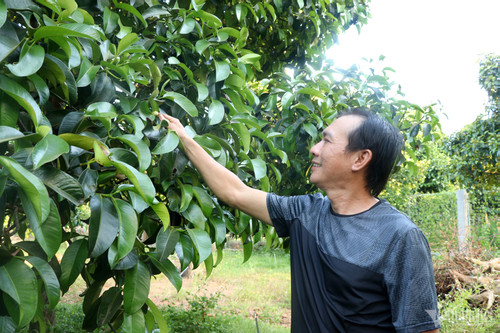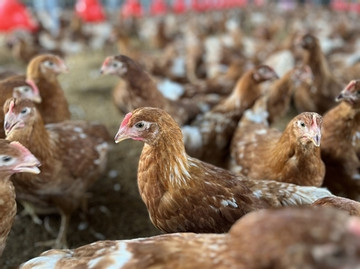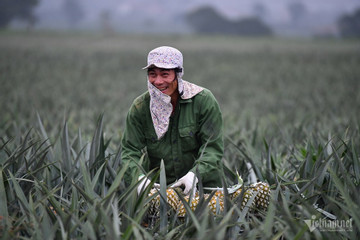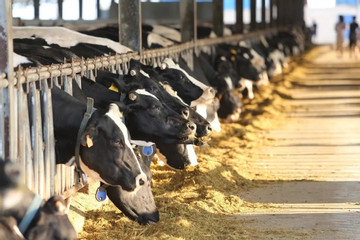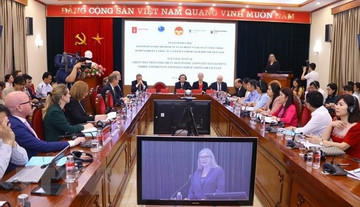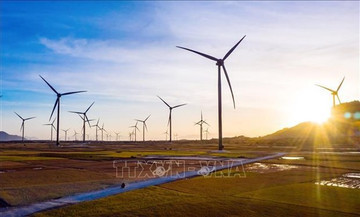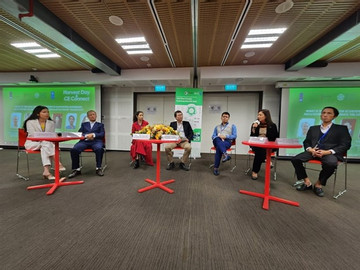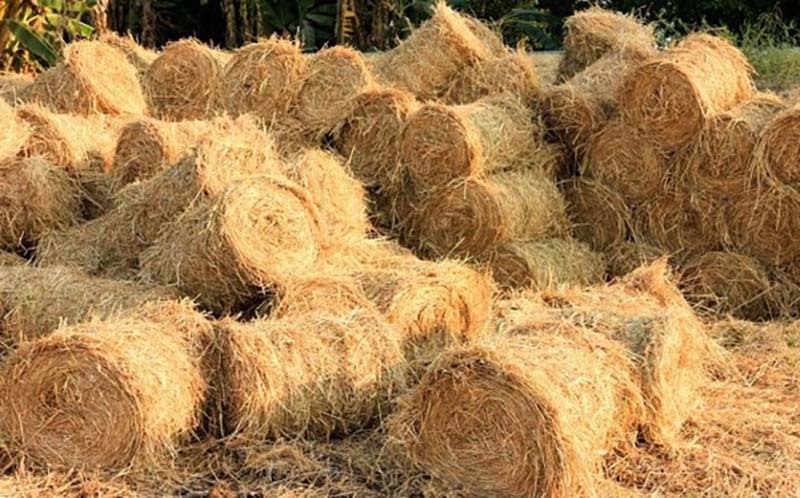- © Copyright of Vietnamnet Global.
- Tel: 024 3772 7988 Fax: (024) 37722734
- Email: evnn@vietnamnet.vn
circular economy
Update news circular economy
Vietnamese farmers go green, circular economy takes shape
Vietnamese farmers understand that green agriculture and sustainable farming is a must to maintain their presence in the world market.
Circular economy: A solution for sustainable development
Transitioning to a circular economy presents a significant opportunity for sustainable development, aiming at not only meeting economic and social goals but also addressing climate change challenges.
Companies embrace cage-free eggs to meet consumer demand
To embrace the circular economy and meet consumer demand, many companies in Viet Nam have started using cage-free eggs in their production, experts have said.
Farmers use agricultural waste, save tens of billions of VND a year
The circular economy and organic agriculture are being adopted by many enterprises. Agricultural waste is now being re-used in farming.
Animal husbandry sector prospers, but byproducts go to waste
The animal husbandry industry, valued at $23.7 billion, is still struggling with the question of the circular economy. Its by-products, 75 million tons per annum, are being wasted.
Nordic countries share green solutions for circular economy with Vietnam
A scientific seminar titled “Green solutions for circular economy and waste management: Nordic experiences and policy implications for Vietnam” was held in Hanoi on March 23.
Vietnam suggested to join European Circular Economy Stakeholder Platform
Vietnam can take part in the European Circular Economy Stakeholder Platform (ECESP) to make use of Europe’s initiatives and experience in this regard, according to ECESP Vice President Cillian Lohan.
Vietnam needs a policy corridor to promote circular economy
While the circular economy has become a trend in developed economies, it could also be implemented to develop Vietnam if there is an appropriate legal and policy corridor, said experts.
Circular economy is an inevitable path ahead: UNDP
The transition towards a circular economy (CE) offers 4.5 trillion USD in economic opportunities globally by reducing waste, stimulating innovation, and creating employment, according to Ramla Khalidi, Resident Representative of UNDP in Vietnam.
Exporters face tax unless they cut greenhouse gas emissions
Exports to the EU market will become more expensive unless enterprises implement greenhouse gas emission cuts. This will affect the competitiveness of many Vietnamese export companies.
Cashew nut shells pay dirt for green firms
Cashew nuts shells were once believed to be good for nothing and regarded as waste, but the circular economy model has changed everything, turning the waste into big cash spinner.
Vietnam wastes 160 tons of agricultural by-products a year
If 1 million by-products in the seafood industry were processed into valuable products, they would bring in US$4-5 billion. Vietnam produces 160 million tons of by-products a year.
Businesses get set for circular economy
Vietnam’s rapid economic growth has caused environmental challenges which have forced the nation to focus on fostering the development of a circular economy with less pollution and reused and recycled products.
Technology to drive green product formulation and packaging development
Unilever Vietnam's "Clean Future" program aims to develop green products from the inside out through environmentally friendly formulas and packaging, which help reduce greenhouse gas emissions.
Vietnam approves circular economy development scheme
Deputy Prime Minister Le Minh Khai signed Decision No.687/QD-TTg on June 7 approving the circular economy development scheme and setting some ambitious targets.
How to turn waste into resources?
If waste is buried or burned, it will waste 55% - 67% of the biomass and organic matter in solid waste. If the waste is recycled and reused, Vietnam can save billions of US dollars.
Agricultural by-products: a billion-dollar 'gold mine' in Vietnam
Agricultural by-products are called the "gold mine" of the Vietnam agricultural industry with up to 156 million tons per year. But these lucrative sources have been neglected for many years.
Concerns over discarded face masks and the circular economy
How to treat used face masks is a new problem emerging during the fight against the Covid-19 pandemic.
Local businesses still not pursuing sustainable development model
Only 2,000 out of 800,000 businesses have joined the Vietnam Business Council for Sustainable Development, according to the Vietnam Chamber of Commerce and Industry (VCCI).
Turning agricultural waste into cash
The collection and reuse of agricultural by-products not only helps reduce greenhouse gas emissions but also helps farmers have the opportunity to enrich themselves.
